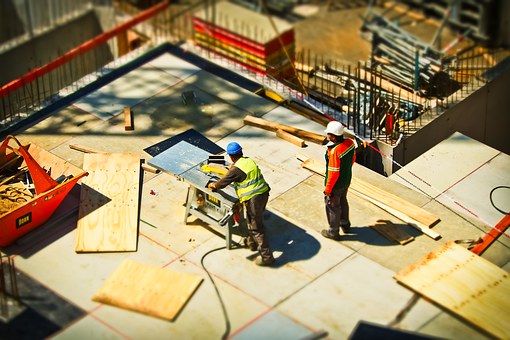Brexit uncertainty causes another drop in construction output
The Federation of Master Builder (FMB) has called on the UK Government and Parliament to break the Brexit deadlock and find a way forward after new figures revealed another drop in construction output.
The March 2019 data from IHS Markit/CIPS revealed a UK Construction Total Activity Index score of 49.7, up slightly from 49.5 in February, against the no change threshold of 50.0.

The statistics point to a sustained decline in construction output, representing the first back-to-back fall in construction output since 2016. While the residential building sector enjoyed an upturn, commercial construction was the worst performing area.
Sarah McMonagle, director of communications at the FMB, said: “The construction industry is being seriously affected by Brexit uncertainty as evidenced by two very worrying sets of results for construction output in the first quarter of 2019. Businesses have been waiting for politicians to come to some resolution for far too long now, and it’s time that this deadlock was broken.
“It’s not surprising employers are finding it hard to plan for the future, when we don’t even know when, or indeed if, we’re leaving the EU. Today’s results are a reminder of just how vulnerable the construction industry is to political turmoil as confidence among consumers and contractors continues to wobble.”
Ms McMonagle added: “Brexit uncertainty and the construction skills shortage have created a perfect storm in our industry. Around 9% of construction workers in the UK are from EU countries, but we know from speaking to small construction employers that many of these skilled workers are starting to return, whether that’s because of strengthening economies elsewhere, or that they simply don’t feel welcome anymore. This is compounding an already severe construction skills shortage, and I’m worried that the government’s post-Brexit immigration system will make it even worse. For example, the system will not allow Level 2 tradespeople to live and work in the UK for more than 12 months at a time.
“At the same time, the government’s figures last week show that the number of Level 2 apprenticeship starts among our domestic workforce is dropping. It’s quite simply not possible to build the homes and infrastructure we need without bricklayers, carpenters and plasterers.
“The government and industry must work together to attract more people into the industry, by offering them high quality training with clear career pathways for progression but in the meantime we need sustained access to tradespeople of all skill levels for the industry to continue being open for business.”
Joe Hayes, economist at IHS Markit, which compiles the survey said: “Fears that the recent weakness of the UK construction sector may not be just a blip, but a sustained soft patch, were further fuelled by latest data.
“Amid subdued inflows of new work, a first back-to-back decline in output since August 2016 was recorded.
“Brexit-related uncertainty continued to generate indecisiveness, ultimately hitting order book volumes. Furthermore, strong competition for contracts was also reported by some panel members.
“The outlook was subsequently underwhelming by historical standards, with the unsettled political and economic environment keeping business confidence below its long-run average.
“Nevertheless, UK construction businesses ramped up their purchases of materials and other inputs, reflecting efforts to build safety stocks ahead of any potential Brexit-related disruptions.
“As such, supply chain constraints persisted and average input lead times lengthened once again.”
Duncan Brock, group director at the Chartered Institute of Procurement & Supply, added: “It is unlikely that next month will bring about any positive news given the challenges of a weaker UK economy, volatile pound and intense competition for new orders, as Brexit continues to cast a long shadow over the sector’s future.”




















